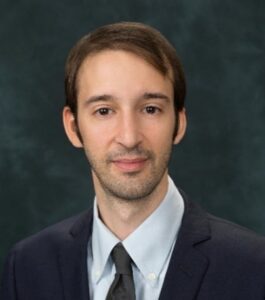Date and Time
The RSA Research Network on Smart Policies for Regional Innovation, Sustainability and Transitions (SPRINT) is glad to announce its first online event: “Introduction to novel methodologies in regional innovation policies”. This workshop will be organised in collaboration with researchers from the United Nations’ World Intellectual Property Organisation (WIPO) and the European Commission’s Joint Research Centre (JRC). Leading researchers in the field of innovation policies from both institutions will deliver an overview of the cutting-edge methods that such organisations are currently using to provide evidence-based regional innovation policies to their respective Member States.
The event particularly welcomes early career researchers, who will benefit the most from a discussion on the research methods that are currently being used in leading international organisation in the field of regional innovation policies. The confirmed speakers include Julio Raffo (Head of the Innovation Economy Section at the Department of Economics and Statistics at WIPO), Federico Moscatelli (Research Fellow at the Innovation Economy Section at the Department of Economics and Statistics at WIPO) and Dario Diodato (Economist at the European Commission’s JRC). The event will last for 90 minutes (10 minutes introduction, 60 minutes presentation from the speakers and 20 minutes Q&A).
At SPRINT we hope that this event will also serve as a way to stimulate the dialogue between academic and policy researchers to foster the connection between academia and policy in the field of regional studies. Please join us!
About the speakers

Julio Raffo, (World Intellectual Property Organization (WIPO), Switzerland)
Julio Raffo is Head of the Innovation Economy Section at the Department of Economics and Data Analytics of the World Intellectual Property Organization (WIPO). Before joining WIPO, he was a researcher at the École Polytechnique Fédérale de Lausanne (EPFL). He holds a bachelor’s in economics from the Universidad de Buenos Aires, a master’s degree in Industrial Organization, Innovations and International Strategy and a PhD in Economics from the Université de Paris Nord. His main research interests are the economics and metrics of innovation and intellectual property, with a particular focus on their intersection with socioeconomic development. He has extensively published in leading scientific journals such as Journal of Research Policy, The European Journal of Development Research and Regional Studies, among others.

Federico Moscatelli, (World Intellectual Property Organization (WIPO), Switzerland)
Federico is Research Fellow at the World Intellectual Property Organisation’s Innovation Economy Section. He holds a bachelor’s in economics and a master’s in management and Analytics, both from Universidad Torcuato di Tella. Federico’s work covers a wide range of topics among which the implementation of indicators and metrics for innovation policies. Lately, Federico has been particularly focused on the application of economic complexity techniques to improve evidence-based innovation policies.

Dario Diodato (Joint Research Centre)
Dario is an economist for the Joint Research Centre of the European Commission. Between 2017 and 2019, he was a postdoctoral research fellow at Harvard University’s Growth Lab. Before obtaining his PhD in Economic Geography at Utrecht University (2013-2017), he worked as a researcher in urban and regional economics at the PBL Netherlands Environmental Assessment Agency (The Hague, 2009-2012).
His research interests include technological change, structural transformation, migration and technology diffusion, cities and regions, human capital and skills, economic complexity and economic resilience. Dario has extensively published in leading scientific journals such as Journal of Economic Geography, Research Policy, Journal of Urban Economics, Industry and Innovation and European Economic Review, among others.
SPRINT focuses on the smart specialisation strategy (S3) approach as an evolving method of designing place-based innovation policy. We build on three years of cooperation through the Marie Skłodowska-Curie Policies for Smart Specialisation research network, as early career scholars with considerable research experience in the investigation of the implementation of S3 policies. The objective of this RSA network is to build upon and expand our prior work; seeking to reorientate academic interest toward the future of S3, considering recent shifts in European policy towards the New Innovation Agenda, Partnerships for Regional Innovation (PRI) and moves towards Open Discovery Processes. We focus on the transition from S3 to sustainable S3 (‘S4’); considering how the new approach aligns with other territorial policies which aim to (1) Drive sustainable economic development through ‘green’ innovation, (2) Tackle regional inequality, and (3) Foster regional resilience.